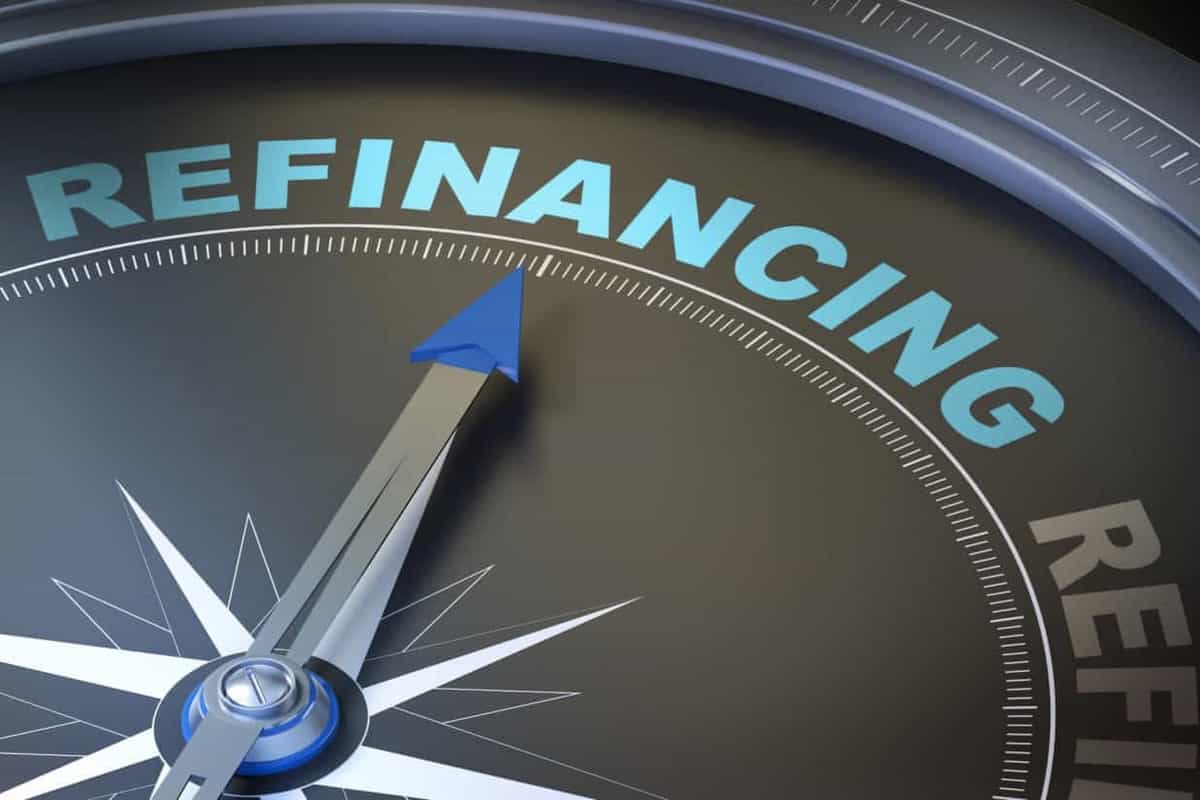Chapter 12 Bankruptcy – Five Things Every Fisherman Should Know
Nov 13, 2020

Declining sales. Dwindling vendor opportunities. Shifting consumer preferences. As more restaurants close and seafood wholesale prices continue to crater, commercial fishermen face mounting financial pressures from the novel coronavirus pandemic. Although the Secretary of Commerce has earmarked $300 million to affected fisheries under the federal CARES Act, these funds may not be enough to prop up most commercial fishery operators. These circumstances are forcing many in the $100 billion-dollar seafood industry to ponder what steps would be necessary to ensure their survival.
If you are finding it challenging to navigate the economic waters posed by today’s volatile economic and regulatory conditions, you may want to take advantage of the protections offered by Chapter 12 bankruptcy. These protections, which are codified in 11 U.S.C. §§ 1201-1232, give fishermen and farmers a flexible framework to repay their outstanding debts without forcing them to shut down and liquidate their assets. Given today’s unstable environment, more and more fishermen and farmers are turning to Chapter 12 to relieve the debt burdens their ventures are facing. Federal court data shows that Chapter 12 bankruptcy filings increased by 23% from the previous year to 627 through the yearlong period ending on March 31, 2020. Given that this filing year ended just as states began implementing coronavirus-related business restrictions, it would be unsurprising if the number of these filings increases even more.
The Chapter 12 bankruptcy process is organized to meet the specific restructuring needs of commercial fishermen and may be necessary for your business to consider depending on your circumstances. Here are some important issues you will need to know regarding whether filing for Chapter 12 bankruptcy would be the right path for you and your business.
1. The Chapter 12 Process Is Better Suited to the Needs of Commercial Fishermen
Suppose your commercial fishing business is eligible to petition for Chapter 12 bankruptcy protection. In that case, your business will face a far more streamlined and cost-effective process for repaying and restructuring your debt than it would under other bankruptcy chapters. This is because the process takes into consideration fisheries’ fluctuating seasonal revenues and debt burdens.
Under Chapter 12, eligible debtors can freeze creditors’ payment requests upon petitioning for Chapter 12 bankruptcy and must propose three-to-five-year repayment plans to satisfy all debts to their creditors. Unlike bankruptcy proceedings in other chapters, these payments do not need to set at a fixed amount per month and can instead be adjusted for seasonal fluctuations in a fishing venture’s yearly revenue stream. These payments do not even need to be monthly; in In Re Michael Craig Purviance, the Bankruptcy Court for the District of Alaska approved a quarterly payment plan for the debtors involved.
The debtor’s proposed repayment plan does not require the approval of the fishing venture’s creditors, so long as the payment plan satisfies all other conditions of Chapter 12 and is approved by the court. However, debtors will be required to submit these payments to an appointed trustee, who then allocates those payments to all eligible creditors, debtors, and other participants. Trustees will typically allocate a Chapter 12 debtor’s payments in the following order:
- Approved administrative expenses of the trustee
- Court-allowed expenses for the administration, including but not limited to attorney’s fees
- Approved secured claims
- Approved priority unsecured claims
- Non-priority unsecured claims
- Approved executory contracts and unexpired leases of the debtors that are assumed by the estate
The Chapter 12 debtor is discharged from its debt obligations once the debtor has met all its payments and can qualify for discharge even earlier if the venture’s owner or owners cannot provide payments due to illness or incapacity. Under Chapter 12, fisheries can expedite the repayment process by pursuing cramdowns of their secured debt obligations and collecting profits from the sale, usage, or leasing of business property for regular business activities without seeking court or creditors’ approval. Experienced Chapter 12 bankruptcy attorneys can be a helpful resource to turn to for determining what tactics would be effective for maximizing your debt repayment options.
Chapter 12 bankruptcies offer fisheries a much more streamlined and affordable path to debt resolution than other bankruptcy procedures. According to Debt.org, Chapter 11 bankruptcies can range anywhere from $10,000 to millions of dollars in legal fees depending on the size and complexity of the bankruptcy and can take years to resolve. Businesses facing Chapter 7 bankruptcies, on the other hand, face immediate closure and liquidation of assets. Chapter 12 bankruptcies offer fishermen a happy compromise, allowing them to leverage expedited, debtor-friendly repayment protocols while maintaining their business operations.
2. You Will Need to Satisfy Certain Ownership, Revenue, and Debt-Related Requirements to Qualify
Although Chapter 12 bankruptcy procedures are tailor-made for commercial fishermen, not all fishermen will qualify for the Chapter 12 process. The Code itself permits “family fishermen” with regular annual income to leverage the Chapter 12 bankruptcy process. This definition includes not only individual fishermen, but also corporations and partnerships.
The eligibility requirements for “family fishermen” vary depending on whether the petitioner is an individual or a business entity. Individual family fishermen will qualify for chapter 12 bankruptcy only if they meet the following conditions:
- The individual, or a married couple, is engaged in a commercial fishing operation;
- The operation’s total secured and unsecured debts amount to, at most, $1,924,550;
- At least 80% of the operation’s fixed debts are related to the commercial fishing operation itself; and
- More than 50% of the individual or married couple for the preceding tax year originates from the commercial fishing operation
Corporations and partnerships, on the other hand, can also apply for Chapter 12 bankruptcy if they meet the following requirements:
- More than 50% of the outstanding stock or equity in the entity must be owned by one family, or by a single family and its relatives;
- Eligible shareholders conduct a commercial fishing operation, more than 80% of the corporate or partnership assets are related to the fishing operation, the total indebtedness does not exceed $1,924,550; and
- At least 80% of the entity’s total debts are related to the fishing operation
It is important to note that only privately-held corporations are eligible for Chapter 12 bankruptcy. Corporations that offer publicly-traded shares will not qualify for Chapter 12’s provisions.
3. A Court Could Still Convert Your Chapter 12 Bankruptcy Under a Different Chapter
Even if you initially file for Chapter 12 bankruptcy, you can always convert your case under a different bankruptcy chapter. However, it is essential to note that courts can also step in to convert your case based on available evidence. For example, in Lakefront Investors LLC v. Clarkson, several petitioners unsuccessfully attempted to file a Chapter 12 petition relating to their aquaculture business. Although the Court acknowledged that their business activities fell under the types of activities the Code recognized for “family fishermen,” the Court nonetheless converted their proceeding into a Chapter 11 proceeding because the petitioners’ combined debts exceeded the statutory limits allowed for Chapter 12. Commercial fishermen should convene with experienced maritime attorneys and Chapter 12 bankruptcy lawyers to assess whether their circumstances could leave the door open to a subsequent conversion that could harm their business interests.
4. Creditors Can Still Have Your Chapter 12 Bankruptcy Petition Dismissed
Although Chapter 12 does provide fishermen and commercial fishing enterprises invaluable protections, creditors and collectors can still move to strip away these safeguards. As outlined in 11 U.S.C. § 1208(c), parties of interest, including creditors and collectors, can petition to have a court dismiss your Chapter 12 petition should any of the following occur:
- you unreasonably delay or grossly mismanage aspects of the bankruptcy process or repayment process that prejudice your creditors;
- you fail to pay relevant fees and charges;
- you fail to timely file a repayment plan for court approval;
- you fail to start making timely payments as required by the court-approved repayment plan ⮚ the court denies confirmation of your repayment plan and denies any request you have made for additional time for filing another plan or modifications to an existing plan;
- you materially default on the terms of your repayment plan;
- the court revokes an order of confirmation on fraud grounds, or denies confirmation of a modified plan you submit for approval;
- the court terminates an approved plan due to the occurrence of a condition specified in that plan; ⮚ the continuing loss to or diminution of your estate and absence of a reasonable likelihood of rehabilitation; and
- your failure to pay any domestic support obligation that first becomes payable after the date of the petition’s filing.
It is also important to note that under 11 U.S.C. § 1208, creditors can also move to have your Chapter 12 claim converted to a Chapter 7 case and, in turn, force your business to wind down its affairs. However, creditors can only pursue this route if they can establish that you or your business has committed fraud. Working with an experienced maritime attorney will help ensure your company has an organized, court vetted plan to timely repay your creditors and discharge your debts without sacrificing your Chapter 12 eligibility.
5. How You Organize Your Business Could Impact Your Eligibility for Chapter 12 Bankruptcy
Chapter 12 bankruptcy provisions target individual fishermen, family fishermen, corporations, and partnerships that satisfy specific debt and revenue conditions. However, courts have not definitively determined whether Chapter 12’s bankruptcy protections extend to other entities such as limited liability companies. As outlined in In re Victorious, LLC, at least one federal district court has determined that if a debtor business entity such as a limited liability company is not family-owned, it likely will not qualify for Chapter 12 bankruptcy immunity from creditors. This same case also raises the possibility that courts, for public policy reasons, could acknowledge arguments permitting them to overlook an LLC entity’s existence and impute Chapter 12 eligibility to the individuals managing it. This argument would apply not only to LLCs and other entities owned by individuals, but also to LLCs owned by other designated business entities.
Conclusion
Although Chapter 12 does confer many advantages and benefits to commercial fishermen who are considering bankruptcy, deciding whether to move forward with declaring bankruptcy under Chapter 12 can present a complicated decision. Commercial fishermen will need to consider a wide array of factors and variables before determining whether it would make sense to file for bankruptcy, and develop an effective plan to pay down their outstanding debts. Our seasoned, experienced attorneys will work with you to determine whether declaring Chapter 12 bankruptcy would be the best course of action for your business.

About the author
Isaak Hurst
Isaak’s current list of clients includes shipowners, charterers, shipyards, seafood companies, importers, exporters, freight forwarders, carriers, offshore oil and gas companies, mining companies, construction companies, and other entities and persons engaged in the maritime and transportation industry.
